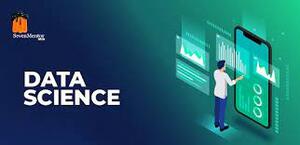What are the tips to be a professional data scientist?
منشور من طرف nikita rai
الجسم
Becoming a professional data scientist requires a combination of technical expertise, domain knowledge, and effective communication skills. Here are some essential tips to help you excel in this field:
- Master the Fundamentals: Build a strong foundation in mathematics and statistics, as these are the backbone of data science. Understand concepts like linear algebra, probability, and hypothesis testing, as they form the basis of many machine learning algorithms and statistical analyses.
- Learn Programming Languages: Proficiency in programming languages like Python or R is crucial. These languages are widely used for data manipulation, analysis, and building machine learning models. Familiarize yourself with libraries like NumPy, Pandas, and Scikit-Learn to efficiently work with data.
- Dive into Machine Learning: Gain in-depth knowledge of machine learning algorithms, including supervised and unsupervised techniques. Understand how to preprocess data, select appropriate algorithms, tune hyperparameters, and evaluate model performance. This knowledge is essential for building predictive and prescriptive models.
- Data Wrangling Skills: Often, real-world data is messy and unstructured. Learn how to clean, transform, and preprocess data effectively. This skill is crucial for obtaining accurate and meaningful insights from your datasets.
- Domain Expertise: To provide valuable insights, it's important to understand the specific domain you're working in. Whether it's healthcare, finance, or any other field, domain knowledge helps you ask the right questions and make relevant decisions.
- Version Control: Use version control systems like Git to manage your codebase. This ensures collaboration, tracks changes, and makes it easier to revert to previous versions if needed.
- Continuous Learning: The field of data science is rapidly evolving. Stay up-to-date with the latest advancements, research papers, and trends in machine learning and AI. Online courses, webinars, conferences, and reading blogs are great ways to keep learning.
- Collaboration and Communication: Data scientists rarely work in isolation. Collaborate effectively with domain experts, software engineers, and business stakeholders. Communication skills are key to conveying complex findings in a clear and understandable manner.
- Build a Portfolio: Create a portfolio showcasing your projects. This demonstrates your skills and approach to solving real-world problems. Highlight projects that showcase a variety of skills, from data preprocessing to model deployment.
- Problem-Solving Mindset: Data science is about solving problems. Approach challenges with a structured and analytical mindset. Break down complex problems into smaller, manageable steps.
- Soft Skills: Develop soft skills like critical thinking, curiosity, adaptability, and empathy. These qualities enhance your problem-solving abilities and make you an effective team member.
- Networking: Attend conferences, meetups, and online forums to connect with fellow data scientists, share experiences, and learn from others.
In conclusion, becoming a professional data scientist involves a blend of technical skills, domain knowledge, and interpersonal abilities. By mastering these aspects and staying committed to continuous learning, you'll be well on your way to excelling in the dynamic and exciting field of data science.
To Read more visit- Data Science Course in Pune














تعليقات